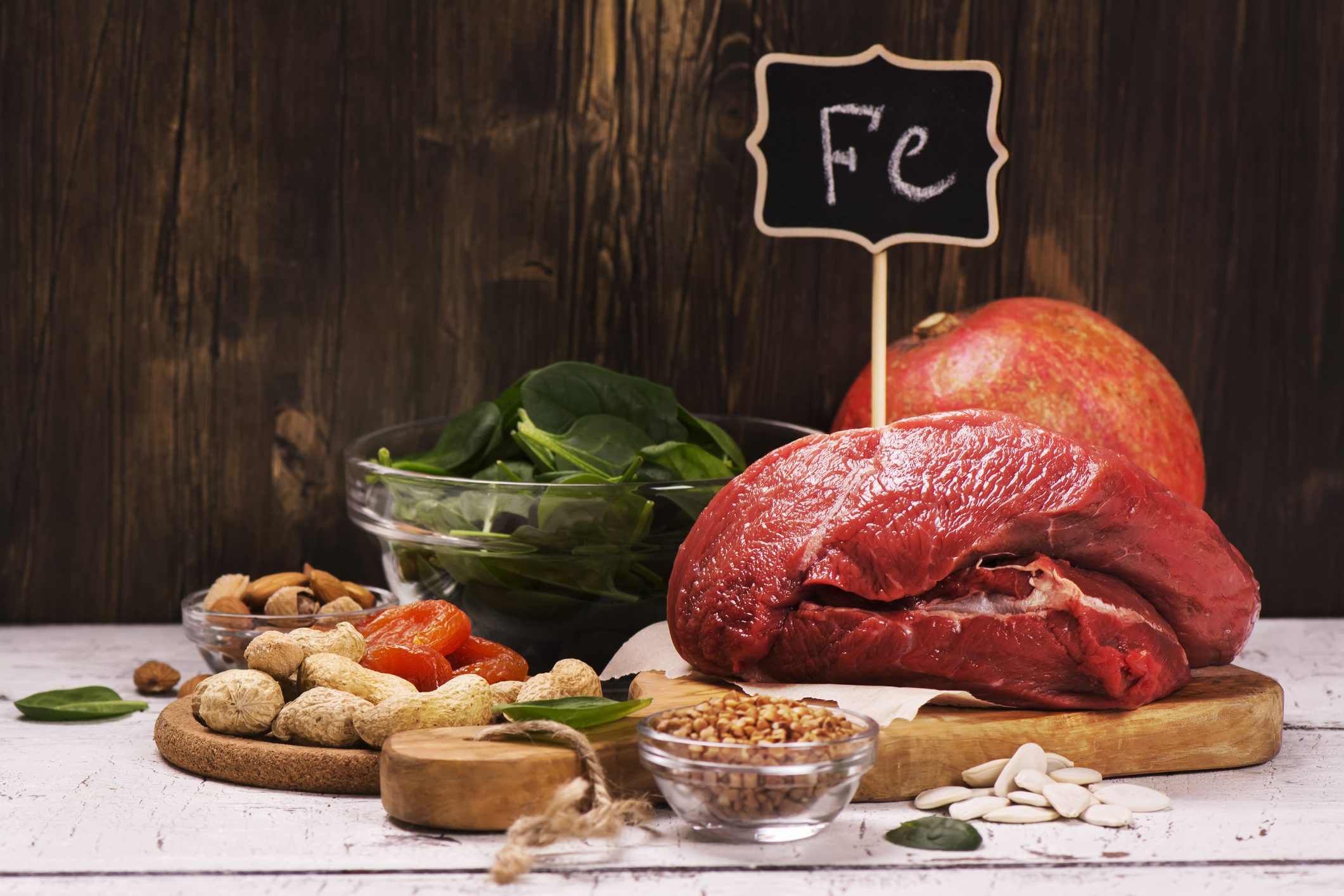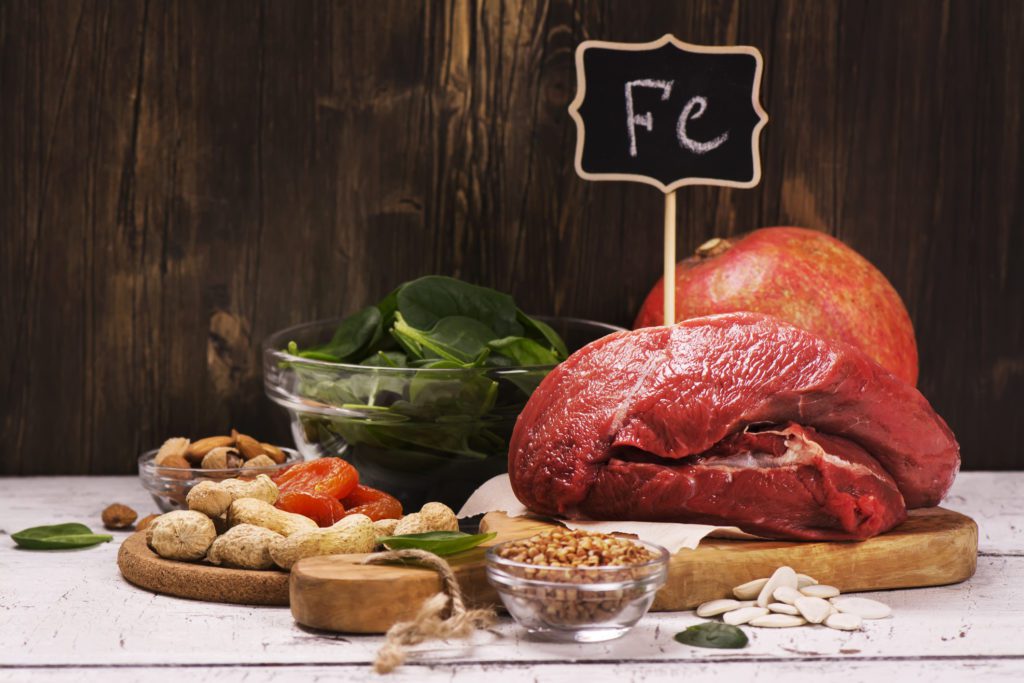Iron deficiency: How it impacts your athletic performance and what you can do about it

— By Dr. Chris Willer
Why is iron important to our health and athletic performance? Iron is a necessary micronutrient and ingredient in hemoglobin and myoglobin working in the exchange cycle of oxygen from your blood to your muscles. If you have low iron levels you aren’t efficient in oxygenation of your body’s tissues and so can’t function optimally. The iron equation and how low iron can negatively impact on sport performance is unique to each individual. Once you understand your individual profile, you can address how low iron might impact you specifically. Since athletes are more likely to have iron deficiency than sedentary people, it’s a helpful topic to look into. If fatigue is cramping your performance read on.
As an athlete you will lose iron in many ways
The are many reasons why athletes have less iron that the average person. Iron deficiency may be due to:
- less recuperative time between excessive exercise
- less blood flow to the GI tract and organs as it is shunted to large muscle groups during exercise resulting in malabsorption of iron in the gut
- muscle damage and oxidative stress through micro-rupture of muscle fibres
- increased iron loss in sweat or urine
- higher hepcidin levels from the body’s inflammatory response that inhibits iron absorption
Get tested to rule in iron deficiency or rule out other causes of fatigue
A vast range of etiologies can cause fatigue in triathletes from poor sleep, to celiac disease (where up to 70% of athletes with celiac disease have iron deficiency) to heavy menses (menorrhagia). Some causes of fatigue are objectively tested for -– iron levels in your bloodstream or doing a sleep evaluation. Some causes of fatigue aren’t so objectively tested for -– psychological causes for example like depression or anxiety.
Adding back deficient iron will help athletic performance
How does supplemental iron help with markers of performance like VO2 max? A small study of 37 female volleyball players, 17 of whom were categorized as having latent iron deficiency and 20 others who had iron deficiency anemia showed that daily iron supplementation over a period of two months created a small but statistically significant improvement in VO2 max in the iron deficient group but not in those at risk for deficiency. Another recent study of university female rowers noted improvement in performance when those identified as having low iron had supplements to replace proper levels of iron.
Eating right will help
Pay attention to your diet if you want to maintain good iron levels. If you don’t regularly eat lean meats, find substitutes that have comparable iron levels. For most athletes who don’t have identified malabsorption problems, a balanced diet is adequate to give you the appropriate amount of daily iron. Learn about the synergistic impact of Vitamin C-rich foods like peppers, oranges, and dark green leafy vegetables on improving iron absorption. Consider reducing caffeine products that have polyphenols, which makes iron harder to absorb. Calorie restricting to drop weight is also a direct challenge to your iron availability, showcasing the importance of a balanced choice of foods and regular intake.
There is a role for iron supplements
Iron needs are thought to be 8 mg/day for men, 15 mg/day for women aged 14-18, 18 mg/day for 19-50 year olds and 27 mg/day for pregnant women. It is still not clear from lack of robust evidence about guidelines for whether female athletes should be taking more than the recommended daily dose of iron pre-emptively although some studies recommend 10 mg more per day. Talk to your pharmacist about how to get the correct preparations that are standardized so you know the equivalent amount of bio-available iron in each nutritional supplement. Supplement levels are much bigger if you have identified iron deficiency.
The bottom line
Athletes are more likely than non-athletes to have low iron levels because of many physiological mechanisms associated with the stress the body goes through when you exercise. Women more than men are prone to formal iron deficiency through additional routes of iron loss related to menses and less diet derived heme (meat) iron intake. If you feel fatigued consider speaking with a medical professional. They can objectively test your blood for established levels of iron and can address the deficits. Interventions might include augmenting your diet with high iron containing foods, foods that increase iron uptake, and limiting foods that make iron absorption less efficient as well as the correct amount of iron supplements. In very rare cases men might also require exogenous iron supplements. All athletes should pay attention to the adage that more is not better in terms of iron supplementation as there are medical problems connected to iron overload.
Topping up your iron levels properly with expert advice does give you a performance advantage in sport mostly through an improved VO2 max. Improvement is connected to you being more readily able to reach your personal sporting goals and to your overall health. Both of these facts are valid reasons for considering if you have iron deficiency, getting it sorted out. You will feel better for it.
Dr. Willer is a sport psychiatrist at St. Michael’s Hospital in Toronto and an avid triathlete for the past 18 years.

